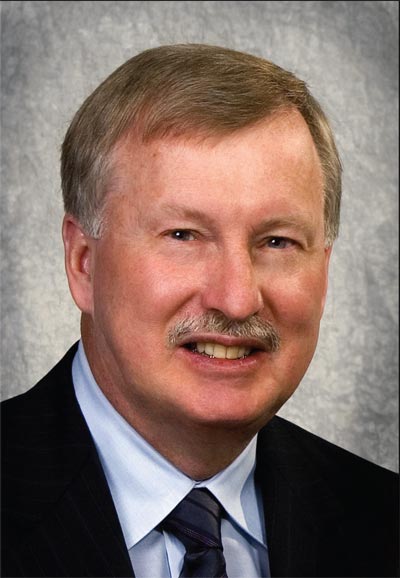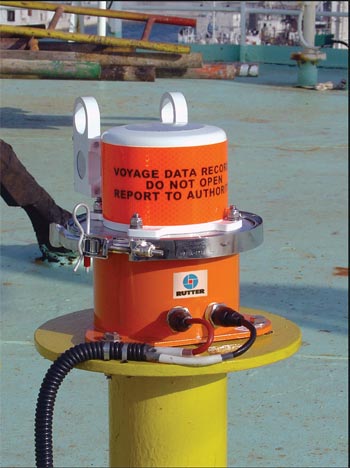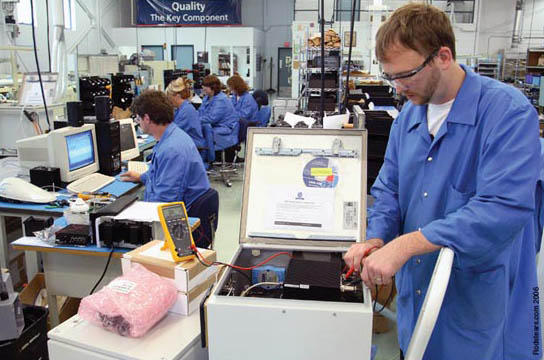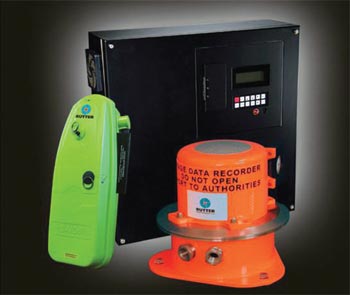On the job
Real world people working on the water
Authored by: Margaret Boyes
Brought to you by www.dieselduck.net, comments to [email protected]
Byron Dawe, President, Rutter Technologies Inc.
 Byron
Dawe has worked in the marine industry since graduating from
university with a degree in engineering. In 1994, while working at
the Canadian Centre for Marine Communications at Memorial
University’s Marine Institute, he heard about a regulatory proposal
that would require all passenger ships and vessels over 3,000 tons
to carry a Voyage Data Recorder (VDR). The VDR is the marine
industry’s equivalent of an aircraft’s black box, and records vital
information about a ship’s voyage and operational systems. The
regulatory proposal gave Mr. Dawe an idea. He began working on that
idea with Sigma Engineering Ltd. and Consolidated Technologies Ltd.,
and in 1998 they formed Rutter Technologies Inc. Their first job was
developing a VDR.
Byron
Dawe has worked in the marine industry since graduating from
university with a degree in engineering. In 1994, while working at
the Canadian Centre for Marine Communications at Memorial
University’s Marine Institute, he heard about a regulatory proposal
that would require all passenger ships and vessels over 3,000 tons
to carry a Voyage Data Recorder (VDR). The VDR is the marine
industry’s equivalent of an aircraft’s black box, and records vital
information about a ship’s voyage and operational systems. The
regulatory proposal gave Mr. Dawe an idea. He began working on that
idea with Sigma Engineering Ltd. and Consolidated Technologies Ltd.,
and in 1998 they formed Rutter Technologies Inc. Their first job was
developing a VDR.
On The Job: Tell us about your company and your current position. What does it involve and what are the challenges?
Byron Dawe: I’m the president of Rutter Technologies Inc. Products Division and have been running that division since 1998. I was one of the founders of the original Rutter Technologies and the VDR we developed. Our core product is the VDR, which is essentially the marine equivalent of the aircraft black box, but we’ve also diversified into other products now. One of our challenges is being a small company going after a global market. We had to establish a brand, build a worldwide dealer network and raise the capital to make the operation large enough to be a significant player in international markets. Up until last year about 99 percent of our sales were outside of Canada and that had its challenges.
OTJ: Why did you choose this career, and what prompted you to start up Rutter Technologies?
Dawe: I’ve been living in Newfoundland surrounded by water and involved in marine related research and development since I graduated from university. I’ve also worked at several organizations where I became aware of the technologies and opportunities needed for the international marine business. I liked the idea of founding a company and felt this was a good opportunity so I went after it.
OTJ: When did you start developing the black box technology?
Dawe: We had already developed the fundamental component technologies for the product through our partner companies. In 1998 we began development of our first generation product, which was a systems integration effort for the most part. Prior to that I was involved in the international body responsible for developing the testing standards for this product. That helped me understand exactly what was required for the VDR and that gave us a bit of an edge in the market.
OTJ: To what extent are you working with government agencies in
developing this technology?

Dawe: We’re a fairly mature company now and into our third-generation product. We used government assistance in the early days and throughout the development of the company. This allowed us to put the research and development resources together, develop our new products and refine the product we already have. We’re now about to launch our third-generation VDR.
OTJ: Have you had any interesting cases yet where information pulled from a marine black box was used in an investigation?
Dawe: We’ve been involved in several incidents where we had to assist to make sure they got the data. Some were very interesting. I’m not free to discuss them in any significant way but we have, for example, had incidents of collisions and some of groundings. We have had two incidents when two ships collided and both carried our VDR. This made for some interesting moments!
OTJ: What do you see as the future for this technology?
Dawe: This device will probably be on all international travelling ships and will eventually filter down into the domestic ferry market. I think it will become a commonplace tool as people become familiar with how it can be used to help their operations. Deck officers and those responsible for managing these ships will definitely use the data for much more than incident investigation. The market for this product now as a regulatory requirement is only just blossoming. Currently the industry is in a steep learning curve with the use of the VDR but I’m sure that as people get comfortable with it will become an integral part of the operational toolbox.
OTJ: Do you foresee a future where all commercial vessels will need black boxes regardless of size? What about small pleasure vessels?
Dawe: I think domestic vessels will eventually use this technology. The pleasure boat market may adopt it but I think that will be strictly voluntary and they may have other reasons for adopting it, such as just keeping an electronic record of a particular voyage. Right now we’re in what’s called a carriage requirement where ships are fitting and will all have to be fitted by July 1, 2010. Essentially this applies to all international traveling ships over 3,000 tons.
OTJ: What should the maritime community know about this black box technology?
Dawe: They should know that it’s here to stay and it’s not only a tool to use in investigating accidents but a tool they should grasp and make use of in operations. The data recorded in the VDR can be very useful from operational and training perspectives. We already have customers upgrading their systems and doing considerable long-term recordings upwards of 30, 60, and 90 days of their operations. They’re doing that so they have assurances of historic data. They’re starting to see it as a training tool for deck officers and as a way of monitoring their ships’ operations.
 OTJ: What do you
like best about your job?
OTJ: What do you
like best about your job?
Dawe: The work tends to be very dynamic. We’re now in the middle of carriage requirements and are installing and servicing systems all over the world. It can be very demanding. We actually have a 24-hour product support operation. We’re selling and shipping products everyday and have shipped well over 2,000 systems. We have a large global customer base and are dealing with ship owners and ships all over the world. We’re in constant contact with our dealer network regarding installation and servicing of ships. So the work is very stimulating when we’re in full operation.
OTJ: What are your thoughts about the future for Rutter Technologies, and how do you see your own role progressing?
Dawe: We’re diversifying the company now and selling other products. We’re moving into areas like coastal surveillance and port security. We supply products to this market that come from radar technology we also have. That’s going to be a very interesting and growing market. The demand for countries to protect their coastline is growing as a result of 9/11 and the threat of terrorism. So we see major opportunities in that line of business. As for my own role, I’m president of the company so I can’t really go much further. I would like to lead more innovation and see Rutter become a larger success along more product lines.
OTJ: Tell us about some people in your line of work that you admire or look up to?
Dawe: I’m a member of various international standards bodies that govern green operations and regularly attend international maritime organizations. I’ve met some very competent people in my travels around the world, people who spend a lot of time making sure our ships are safe and looking at issues such as minimizing pollution. Many voluntarily commit to this type of work. I have had the opportunity to meet Mr. William O’Neill, a Canadian, who just retired from The International Maritime Organization as Secretary General.
OTJ: Do you have any memorable moments from your career, and is there anything you’d change about it?
Dawe: I’m not sure if there’s much I’d change about it — it’s an exciting business. One of the more memorable moments was probably when I clinched a deal with a large German equipment manufacturer to be their supplier for VDR’s. That was critical to the early development of the company and allowed us to start to penetrate the market at that point.
OTJ: Do you have any advice for people who want to do your type
of work? 
Dawe: It’s a tough business to be in. I grew the company with help from my partners from ground up and have probably seen it all. Develop a good business plan and stick to it. Be careful about growing your business and monitoring your cash flows. Play the marketing game and build a brand for your product. These were all critical to our success. You have to be prepared to travel extensively. Some advice for small vessel owners is that they should be aware that all these large ships are now being fitted with these systems and, in case of an incident involving one of these large ships, the small vessel owner might want to request that a copy of the data be made so that a precise record of what transpired is available.